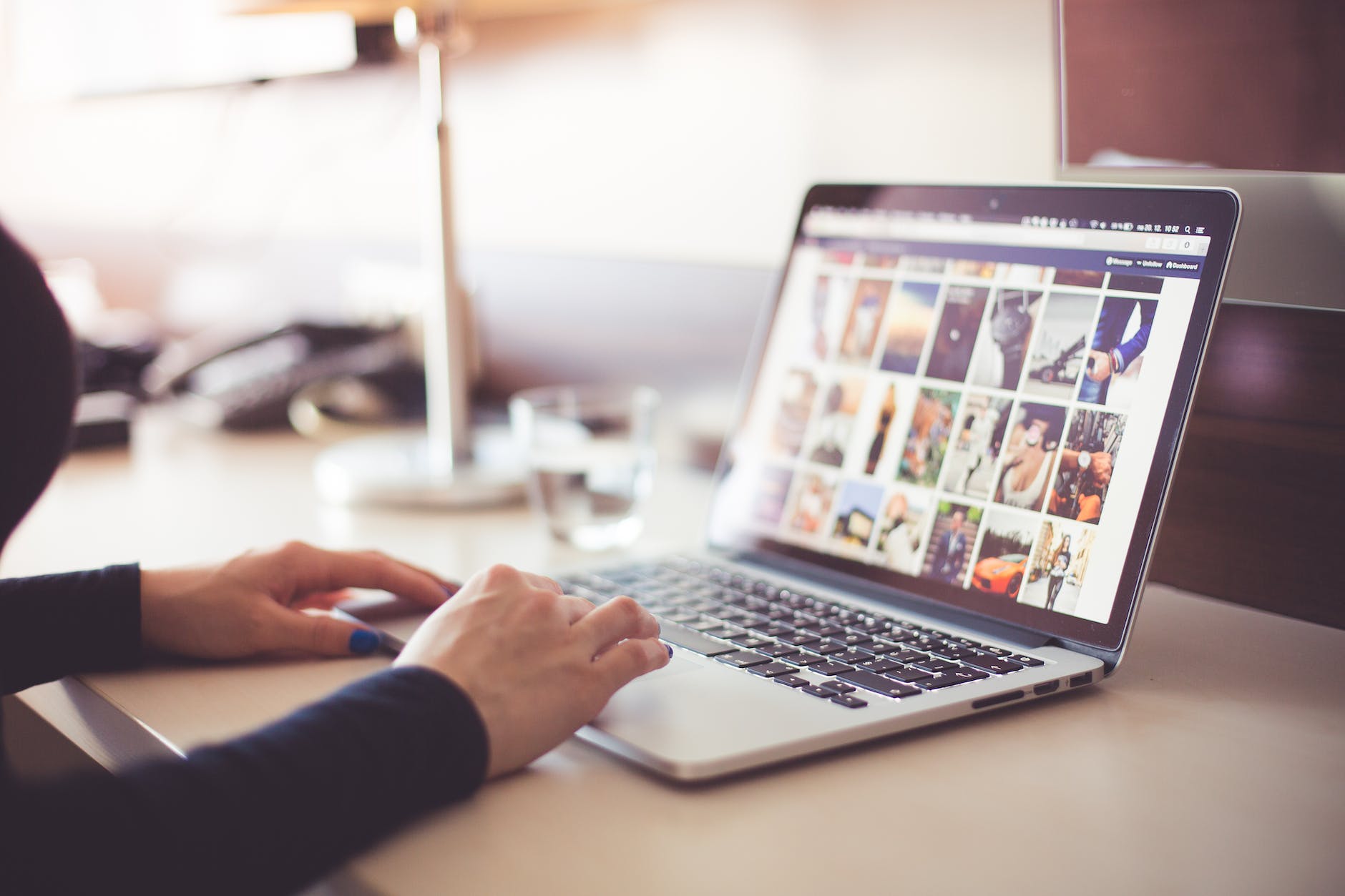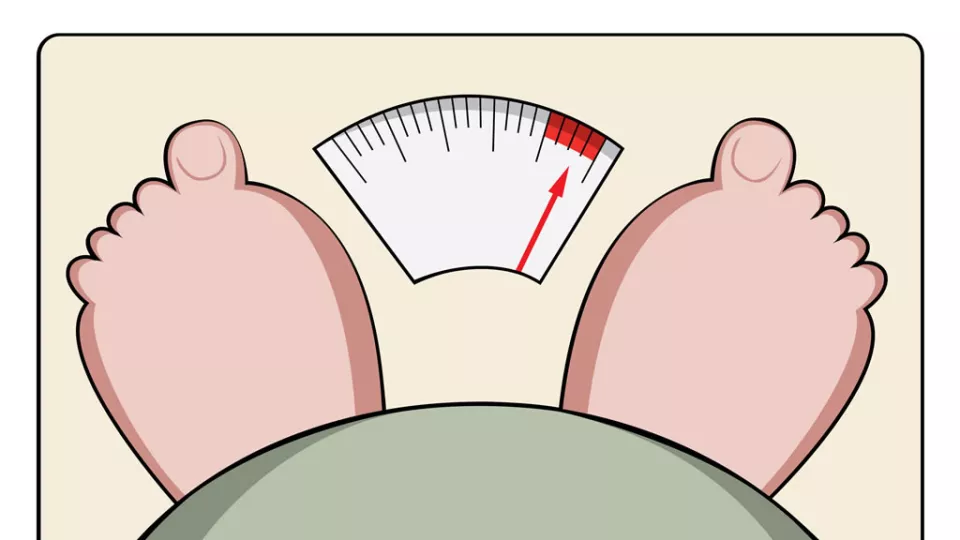Social media has become integral to our daily routines: we interact with family members and friends, accept invitations to public events, and join online communities to meet people who share similar preferences using these platforms. Social media has opened a new avenue for social experiences ever since the early 2000s, adding the possibilities for communication. The use of social media has a growing concern for the mental health of people According to recent research, people spend 2.3 hours daily on social media influence on mental health. YouTube, TikTok, Instagram, and Snapchat have become increasingly popular among youth in 2022, and one-third think they spend too much time on these platforms.
Adverse Effects of Social Media on Mental Health
The continuous use of technology has a greater impact on the digital well-being and mental of a person as people spend considerable time people spend on social media worldwide has directed researchers’ attention toward the potential benefits and risks. Research shows lower psychological well-being is mainly associated with excessive use Internet. However,as long as it also suggests that the quality rather than the quantity of social media use can determine whether the experience will enhance or deteriorate the user’s mental health. In detail, we will explore the impact of social media use on mental health by providing comprehensive research perspectives are both positive and negative effects.
Continuous Usage
The phenomenon of continuous usage of social media is one of the main worries regarding its impact on mental health. A state of permanent stimulation is facilitated by the incessant flow of information, the compulsive nature of scrolling through endless feeds, and the need to remain connected through digital means. Adverse effects of prolonged screen usage are faced by people. Prolonged exposure has been associated with elevated levels of stress and anxiety, as well as depressive symptoms in certain instances.
It links with Mental Health Problems
According to a study by Twenge and Campbell (2018), there is a worrying link between the rise in adolescent mental health problems and the usage of social media. Unrealistic expectations and feelings of inadequacy can be cultivated by the frequent comparison and inspection of well-managed online personas. It is critical to understand that, despite being an effective medium for communication, social media can also serve as a haven for detrimental psychological effects.
Social Comparison
As I have noted social comparison is central to the conversation about the effects of social media on mental health. People are inherently inclined to assess themselves against others, a tendency that is heightened in the selective realm of social media. One develops a warped standard for evaluating oneself when they are continuously exposed to idealized depictions of other people’s lives.
Understanding this shifting environment is crucial to developing strategies that successfully limit potential harm. As well as recent developments, such as the rise of social media such as Instagram Stories and Snapchat, have added dimensions to social comparison and self-esteem.
Social Isolation
As long as it was discovered between the amount of time spent on social media and elevated experiences of social isolation in a study that was published in the Journal of Social and Clinical Psychology (Twenge et al., 2018). Because internet content is carefully selected, people frequently present just their finest experiences, leaving out the hardships and difficulties that come with being human, which can result in unfair comparisons. This biased portrayal can heighten feelings of inadequacy and lead to a warped perception of reality.
Low Self Esteem
Likes, comments, and shares are examples of feedback methods that social media platforms love. Although these characteristics increase involvement, they also bring in a psychological component that may have a significant effect on self-esteem. Self-worth can become inextricably linked to outside validation in a risky loop when approval is sought through online measurements.
Never Ending Need For Approval
Psychologically, this never-ending need for approval sets off the brain’s reward chemical, dopamine, to release. People may eventually discover that they are caught in a vicious cycle where they need to get more and more online approval to feel worthy of themselves. This tendency called the “like culture,” has consequences for mental health since it perpetuates the idea that the main source of one’s self-worth comes from outside validation.
The impact of social media on mental health is dynamic, changing as platform features, user behavior, and cultural standards change. Understanding this shifting environment is crucial to developing strategies that successfully limit potential harm. Recent developments, such as the rise of transient content on platforms like Instagram Stories and Snapchat, have added dimensions to social comparison and self-esteem.
Personal and Societal Identities
The creation and expression of one’s own identity as well as that of society depends on social media. Examining how social media platforms facilitate identity creation, self-perception, and the affirmation of diverse identities can help us better understand the complex relationship between social media and mental health.
Global Connectivity:
Social media serves as a conduit for information, enabling you to remain in touch and exchange updates with
loved ones anywhere in the world. This online connection fosters a sense of community and helps preserve relationships.
Diverse Networking
Social media makes it easier to find new acquaintances and communities outside of existing connections. It provides a forum for networking with people who have similar interests, resulting in a variety of connections.
Advocacy and Awareness
Social media is a potent instrument for bringing important topics to light and supporting deserving initiatives. It offers a forum for promoting change and adding to the larger discussion regarding societal issues.
Emotional Support
Social media can be a useful tool for people in need of emotional support during difficult times. The platform facilitates the expression of empathy and solidarity among those facing personal or global crises, thereby establishing a virtual support network.
Inclusivity and Creativity
Social media is essential for fostering inclusivity since it provides a means of social interaction for those who live in remote regions or have limited freedom. It turns into a vital platform for artistic expression, giving users the chance to share their skills and meet like-minded people.
Information Access
Social media is a handy means of obtaining important information and educational materials, but one should use caution when dealing with false information. Users can participate in educational debates, remain up to date on a variety of topics, and increase their knowledge base.
Modifying social media use for better mental health:
- According to a 2018 University of Pennsylvania study, cutting back on social media use to 30 minutes in a day significantly decreased feelings of loneliness, anxiety, depression, sleep issues, and FOMO.
- However, reducing your social media usage significantly is not necessary to enhance your mental well-being.
- Social Media Detox Even while many of us may not be able to commit to a full “social media detox” or even just 30 minutes a day, we can still gain from cutting back on our social media usage. For the majority of us, this entails using our cell phones less. The following advice may be useful
- Avoid using your phone in the lavatory. Track how much time you spend on social media each day using an app. Check how much time you spend in the day, including traveling, attending a meeting, working out, having dinner, interacting with friends in person, or playing with your children, switch off your phone.
- Avoid taking your tablet or phone to bed. After turning off the electronics, place them in a different area to charge overnight.
- Turn off notifications on social media. The incessant buzzing, beeping, and dinging of your phone to notify you of new messages is difficult to ignore. You may restore control over your time and attention by turning off your notifications. Limit assessments.
- Checking your phone obsessively every few minutes, try cutting back to once every 15 minutes to start weaning yourself off.
- Certain apps can automatically restrict how much time you can spend on your phone. If you just want to check Facebook, Twitter, and other social media sites from your computer or tablet, try deleting the social media apps from your phone. If eliminating one social media app at a time seems like too big of a step, observe how much of an impact it has.
More time should be spent with pals who are not online.
To be happy and healthy, we all require the company of other people in person. When used properly, social media can be a very useful tool for fostering in-person relationships.
engage with friends and family in person. Make it a habit to always turn off your phone when you get together. Make plans to meet up with an old buddy, whether they are online or in person if you have ignored your in-person friendships. Offer to go for a joint workout or errand run if you both have hectic schedules.
Discover a creative project, pastime, or exercise routine that you like, then connect with a regular group of people who share your interests. Avoid allowing social shyness to get in your way. There are tried-and-true methods for overcoming shyness and forming friendships. Speak with acquaintances if you don’t think you have somebody to spend time with.
Be the one to break the ice because a lot of individuals find it awkward to make new friends, just like you. Ask a student or neighbor to join you for coffee, or ask a coworker to lunch.
Practice Gratitude:
- Resentment, hostility, and unhappiness that are occasionally caused by social media can be greatly reduced by acknowledging and expressing your thankfulness.
- Give yourself some time to think.
- Consider utilizing a thankfulness app or keeping a gratitude journal.
- Make a list of all the wonderful moments and things you have in your life.
- You can even share your thankfulness on social media if you’re more likely to complain or post bad things.
Engage in mindfulness. Feeling FOMO and negatively comparing yourself to others causes you to ruminate on the setbacks and annoyances of life. You’re too preoccupied with the “what ifs” and “if onlys” that keep you from living the kind of life you see on social media to be present in the here and now.
References
- Statista. (2022). Time spent on social media [Chart]. Accessed June 19, 2023, from https://www.statista.com/chart/18983/time-spent-on-social-media/.Return to ref 1 in article
- Pew Research Center. (2023). Teens and social media: Key findings from Pew Research Center surveys. Retrieved June 14, 2023, from https://www.pewresearch.org/short-reads/2023/04/24/teens-and-social-media-key-findings-from-pew-research-center-surveys/.
- Boer, M., Van Den Eijnden, R. J., Boniel-Nissim, M., Wong, S. L., Inchley, J. C.,Badura, P.,… Stevens, G. W. (2020). Adolescents’ intense and problematic social media use and their well-being in 29 countries. Journal of Adolescent Health, 66(6), S89-S99. https://doi.org/10.1016/j.jadohealth.2020.02.011.
- Marciano L, Ostroumova M, Schulz PJ, Camerini AL. Digital media use and adolescents’ mental health during the COVID-19 pandemic: a systematic review and meta-analysis. Front Public Health. 2022;9:2208. https://doi.org/10.3389/fpubh.2021.641831.
- Jameel, A. (2023, December 4). The Impact of Social Media on Mental Health. Modern Diplomacy. https://moderndiplomacy.eu/2023/12/04/the-impact-of-social-media-on-mental-health/
- HelpGuide. (n.d.). Social Media and Mental Health. Retrieved from https://www.helpguide.org/articles/mental-health/social-media-and-mental-health.htm






Hello!
Do you want to become the best SEO specialist and link builder or do you want to outpace your competitors?
[b]Premium base for XRumer[/b]
$119/one-time
Get access to our premium database, which is updated monthly! The database contains only those resources from which you will receive active links – from profiles and postings, as well as a huge collection of contact forms. Free database updates. There is also the possibility of a one-time purchase, without updating the databases, for $38.
[b]Fresh base for XRumer[/b]
$94/one-time
Get access to our fresh database, updated monthly! The database includes active links from forums, guest books, blogs, etc., as well as profiles and activations. Free database updates. There is also the possibility of a one-time purchase, without updating the databases, for $25.
[b]GSA Search Engine Ranker fresh verified link list[/b]
$119/one-time
Get access to our fresh database, updated monthly! The fresh database includes verified and identified links, divided by engine. Free database updates. There is also the possibility of a one-time purchase, without updating the databases, for $38.
[b]GSA Search Engine Ranker activation key[/b]
$65
With GSA Search Engine Ranker, you’ll never have to worry about backlinks again. The software creates backlinks for you 24 hours a day, 7 days a week. By purchasing GSA Search Engine Ranker from us, you get a quality product at a competitive price, saving your resources.
To contact us, write to telegram https://t.me/DropDeadStudio
Mistakenly Identified as Deceased by TransUnion: An Increasing Concern
Inaccuracies in credit reporting can have very harmful impacts. One of the scariest issues people may face is having their credit bureaus, such as **TransUnion**, mistakenly report them as dead. This serious issue can have a major harmful impact on everything from job prospects to credit applications. It is essential in such circumstances to know how to dispute a background check and to manage the challenges of credit report disputes.
### Understanding the Problem
Imagine finding out you are mistakenly listed as deceased on your credit record. This is not an uncommon issue, however. Individuals in this position must move swiftly to fix it. One important first step can be to contact a background check lawyer or a deceased on credit report lawyer. Professionals in background check errors, these professionals can give the advice you need to correct your credit report.
How to Contest a Background Check
Knowing how to dispute a background check becomes essential when confronted with such a major mistake. Reach out to the credit bureau that made the error first. You must prove your ID and prove you are still alive. Utilizing marked as deceased on credit report lawyers can accelerate this sometimes challenging process. These experts can ensure your case is addressed efficiently and lead you through the complexities of a background check dispute.
The Role of Attorneys in Resolving Credit Report Errors
Particularly important is collaborating with my credit report says I’m deceased lawyers. These lawyers specialize in identifying and resolving serious mistakes on credit reports. They can advocate for you in negotiations with credit bureaus and other pertinent parties to make sure your problem is handled and settled promptly. Considering their experience in background check disputes, they are familiar with the legal options available to fix such errors and can offer robust counsel if required.
Preventing Future Errors
After the error is corrected, measures must be taken to avoid it from happening again. Frequently inspecting for errors in your credit report can help spot problems early on. Proactive credit monitoring and understanding how to dispute a background check can help guard against potential mistakes. Should inconsistencies surface, acting swiftly to **dispute a background check** can lessen the effect of these errors on your individual and economic life.
In conclusion, it can be distressing when TransUnion reports you as deceased. However, with the right approach and support from experienced specialists like a background check lawyer, persons can navigate the journey of contesting these errors and recovering their creditworthiness.
Learn more: https://bucceri-pincus.com/emily-islada-cus/